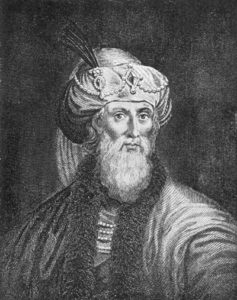 Article: Josephus says, ‘Genesis means what it says!’ by Frank Luke (original source here)
Article: Josephus says, ‘Genesis means what it says!’ by Frank Luke (original source here)
Many people who compromise on the plain meaning of Genesis claim that the literal interpretation is a modern invention. Instead, they claim that most commentators in the past took a long-age view.
On the contrary, the vast majority interpreted the days of Genesis 1 as ordinary days. Furthermore, even those who did not, such as Origen and Augustine, vigorously attacked long-age ideas and affirmed that the world was only thousands of years old.1 Among the Jewish commentators, the first-century historian Flavius Josephus (AD 37–ca. 100) stands out from the rest.
Having been born in Judea and living there in his formative years, Josephus is unquestionably the most important Jewish historian outside of Scripture. Were it not for Josephus, entire periods of Jewish history would have been lost in the mists of time. Like any good Jew, Josephus recognized that one could not understand Jewish history without first understanding its religion. As Scripture defines Judaism, Josephus first explained Judaism by defining Scripture and the Jewish love of their holy books.
“For we have not an innumerable multitude of books among us, disagreeing from, and contradicting one another, [as the Greeks have], but only twenty-two books, which contain the records of all the past times; which are justly believed to be divine;2 and of them five belong to Moses, which contain his laws and the traditions of the origin of mankind till his death. This interval of time was little short of three thousand years; … the prophets … in thirteen books. The remaining four books contain hymns to God, and precepts for the conduct of human life.”3
As always, Josephus cuts to the heart of the matter. No further explanation is needed to clarify his plain words. He explicitly states that man had been around for only 3,000 years by the time of Moses. He goes on to say that Jews hold Scripture so sacred that they would rather die than add to, subtract from, or change any of the divine doctrines of Scripture!4
In the preface to Antiquities, easily his most important work, Josephus further explains his interpretation of Scripture. When explaining why Moses began with the creation account, Josephus records that Moses taught humanity that God blesses those who love and serve Him.
“Now when Moses was desirous to teach this lesson to his countrymen, he did not begin the establishment of his laws after the same manner that other legislators did; I mean, upon contracts and other rights between one man and another, but by raising their minds upward to regard God, and his creation of the world; and by persuading them, that we men are the most excellent of the creatures of God upon earth. Now when once he had brought them to submit to religion, he easily persuaded them to submit in all other things; … while our legislator speaks some things wisely, but enigmatically, and others under a decent allegory,5 but still explains such things as required a direct explanation plainly and expressly.”6
After explaining his methodology, Josephus launches into the Creation account. He quickly established that he considers Moses’ account to be quite literal. He comments, ‘And this was indeed the first day’7 and ‘in just six days the world, and all that is therein, was made.’8 Josephus gives no indication that he considers these words to be enigmatic or allegorical. His comments are as plain in their meaning as Moses’ words in Genesis. Continue reading
